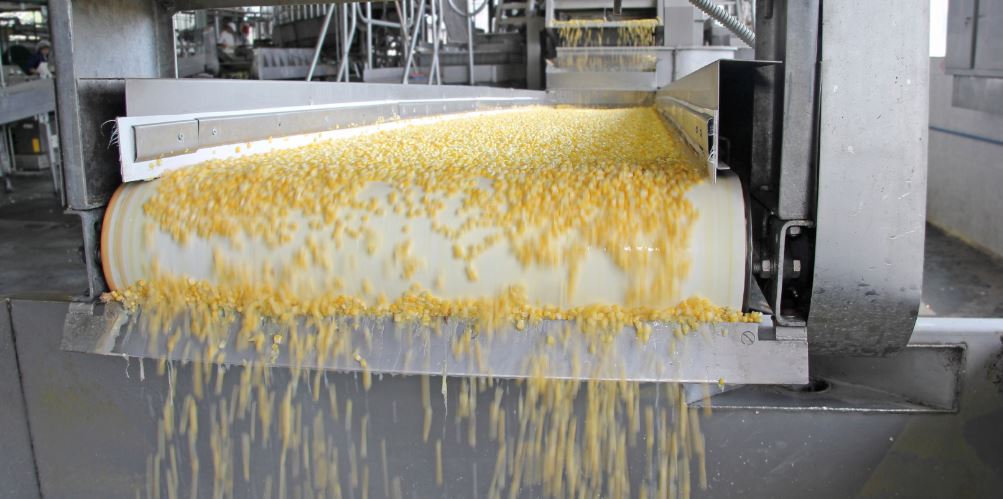Introduction
In the very controlled food sector, contract manufacturers play an essential function in bringing products to market. These firms specialize in generating as well as packaging foodstuff in support of various other companies, permitting brand names to concentrate on advertising as well as distribution. Nonetheless, agreement suppliers have to browse an intricate landscape of food labeling needs to make certain conformity with Australian policies. This post offers insights and also assistance for agreement producers operating in Australia, covering topics such as contract food manufacturing, food safety and security requirements, labeling demands, and also more.
Contract Food Manufacturing: Fulfilling the Need for Outsourcing
Contract food manufacturing has actually come to be significantly popular in recent times as companies aim to outsource their production needs. This plan enables firms to take advantage of food contract manufacturing the experience and also sources of customized suppliers while concentrating on their core proficiencies. In Australia, contract food manufacturing is a flourishing market, with companies offering a large range of services, including product advancement, formulation, product packaging, as well as high quality control.
Understanding Food Safety Requirements in Australia
Food safety and security is of critical importance in the contract production market. Agreement suppliers should adhere to strict policies to make sure the safety and security and honesty of the items they generate. In Australia, these requirements are established by Food Specification Australia New Zealand (FSANZ) and also applied by state as well as area governing authorities.
The Great Production Practices (GMP) standards offer a structure for guaranteeing that foodstuff are made consistently and fulfill high quality requirements. Contract manufacturers must carry out robust quality control systems to comply with GMP needs. This entails establishing procedures for active ingredient sourcing, manufacturing processes, storage, taking care of, packaging, labeling, as well as distribution.
Meeting Classifying Requirements: Key Considerations
Accurate as well as helpful labeling is vital for ensuring consumer safety and security and advertising openness in the market. Agreement suppliers must acquaint themselves with Australian labeling requirements to avoid costly blunders or potential lawful problems. Here are some essential considerations when it concerns food labeling in Australia:
1. Required Tag Information
Australian food labeling laws require particular information to be shown on item labels. This includes the item name, components checklist, allergen info, dietary details, and also country of origin. Contract makers should make sure that all mandatory tag info is precise as well as clearly legible.
2. Allergen Management
Allergen monitoring is a vital element of food labeling in Australia. Contract makers should have durable systems in place to prevent cross-contamination and precisely proclaim the presence of allergens on item tags. This involves performing comprehensive danger assessments, applying partition actions, and also regularly testing for irritant traces.
3. Nutritional Information
Nutritional info is an important consideration for customers when making buying decisions. Australian food labeling regulations require agreement producers to provide precise as well as standardized dietary details on their items. This includes the power worth (calories), protein web content, fat content, carbohydrate content, and also any kind of various other pertinent nutrient information.
4. Country of Origin Labeling
Country of beginning labeling is one more requirement that agreement makers should follow in Australia. This involves clearly showing the nation or countries where the product was made or expanded. The Australian Competition and Customer Payment (ACCC) offers standards on how to fulfill country of origin labeling requirements.

5. Health Claims and also Marketing Messages
Contract makers need to also understand the regulations bordering health and wellness cases and advertising messages on food tags. In Australia, any type of claims made regarding the health and wellness advantages or buildings of an item must be sustained by scientific proof and adhere to particular laws established by FSANZ.
FAQs: Common Inquiries About Food Classifying Needs in Australia
What are the consequences of non-compliance with food labeling demands in Australia? Non-compliance with food labeling demands can lead to legal fines, including fines or item remembers. It can additionally harm a brand name's track record and erode customer trust.
Are there details labeling needs for organic food items in Australia? Yes, organic food products have extra labeling needs in Australia. They must be accredited by a recognized organic certifier and display the appropriate accreditation logo.


Can contract manufacturers help with product development and formulation? Yes, numerous agreement makers provide item advancement and also solution solutions. They can aid in developing customized formulations that fulfill certain dietary or dietary requirements.
What is the role of agreement manufacturers in ensuring food safety and security? Contract makers are accountable for implementing durable food security systems, consisting of GMP guidelines, to make sure the security as well as stability of the products they produce.
Are there any kind of exceptions to food labeling demands for local business? Small businesses might be qualified for certain exemptions or simplified labeling requirements. Nonetheless, it is necessary to talk to regulative authorities or look for legal recommendations to determine eligibility.
How can contract makers stay upgraded on adjustments to food labeling policies? Contract manufacturers ought to frequently monitor updates from FSANZ and various other governing bodies. They can likewise engage with sector associations as well as attend appropriate seminars or workshops to remain informed.
Conclusion
Navigating food labeling demands in Australia is an intricate job for contract manufacturers. Compliance with laws is crucial to guarantee customer safety as well as keep count on the market. By understanding the vital considerations outlined in this short article, agreement producers can navigate the regulatory landscape effectively while delivering top notch products that meet industry requirements. Partnering with experienced experts that concentrate on food labeling as well as compliance can even more enhance an agreement manufacturer's capability to satisfy these demands successfully.